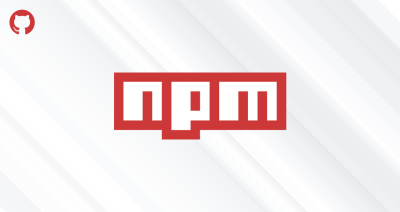
SCA vs SAST: what are they and which one is right for you?
We’re taking a look at two commonly-used security tools and detailing how they can help secure your projects.
Resources for securing your supply chain, building more secure applications, and staying up-to-date with the latest vulnerability research. Get comprehensive insights into the latest security trends—and news from the GitHub Security Lab. You can also check out our documentation on code security on GitHub to find out how to keep your code and applications safe.

We’re taking a look at two commonly-used security tools and detailing how they can help secure your projects.

Supply chain attacks exploit our implicit trust of open source to hurt developers and our customers. Read our proposal for how npm will significantly reduce supply chain attacks by signing packages with Sigstore.

In this post I’ll exploit CVE-2022-20186, a vulnerability in the Arm Mali GPU kernel driver and use it to gain arbitrary kernel memory access from an untrusted app on a Pixel 6. This then allows me to gain root and disable SELinux. This vulnerability highlights the strong primitives that an attacker may gain by exploiting errors in the memory management code of GPU drivers.

New Actions from Anchore, NowSecure, SBT, and Trivy are now available to create a more comprehensive GitHub Dependency Graph.

In this post I’ll exploit CVE-2022-1134, a type confusion in Chrome that I reported in March 2022, which allows remote code execution (RCE) in the renderer sandbox of Chrome by a single visit to a malicious site. I’ll also look at some past vulnerabilities of this type and some implementation details of inline cache in V8, the JavaScript engine of Chrome.

We’re excited to announce that the GitHub Advisory Database now includes curated security advisories on Erlang, Elixir, and more.

Expand the completeness of your dependency graph by using the dependency submission API, which will create more comprehensive alerts on supply chain vulnerabilities

In this post I’ll exploit CVE-2022-22057, a use-after-free in the Qualcomm gpu kernel driver, to gain root and disable SELinux from the untrusted app sandbox on a Samsung Z flip 3. I’ll look at various mitigations that are implemented on modern Android devices and how they affect the exploit.

To combat the prevalence of malware in the open source ecosystem, GitHub now publishes malware occurrences in the GitHub Advisory Database. These advisories power Dependabot alerts and remain forever free and usable by the community.

The Rust community can now discover, report, and prevent security vulnerabilities.

It was another record year for our Security Bug Bounty program. We’re excited to highlight some achievements we’ve made together with the bounty community from 2021!

We’re taking a look at some of the most common security vulnerabilities and detailing how developers can best protect themselves.

These days software is subject to an ever-changing threat landscape. Check out the many ways you can keep your projects secure on GitHub today.

Do you worry that a CVE will hurt the reputation of your project? In reality, CVEs are a tracking number, and nothing more. Here’s how we think of them at GitHub.

Introducing CodeQL packs to help you codify and share your knowledge of vulnerabilities.
Build what’s next on GitHub, the place for anyone from anywhere to build anything.
Catch up on the GitHub podcast, a show dedicated to the topics, trends, stories and culture in and around the open source developer community on GitHub.